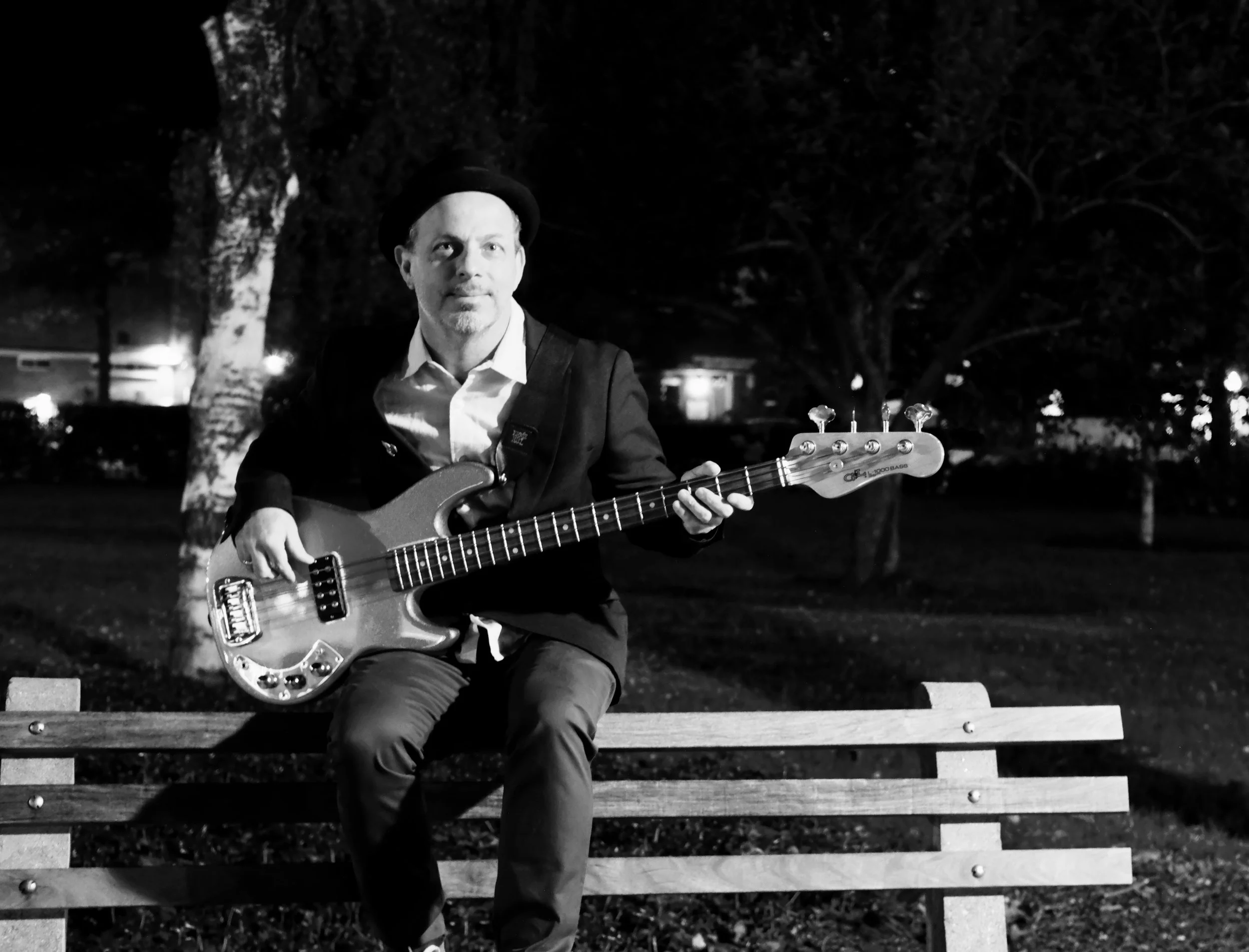< back to Calendar >
25th Anniversary season
Music of Our Common Earth
Festival Concert 2
August 6, 2019
Tuesday
7:30 pm – Festival Concert at Darrows Barn
6:30 pm – Pre-concert lecture by Mark Mandarano
Darrows Barn at Round Top Farm
PROGRAM
Leonard Bernstein Sonata for Clarinet and Piano (1942)
Derek Bermel, clarinet; Thomas Sauer, piano
Derek Bermel Theme and Absurdities (1993)
Derek Bermel, clarinet
Derek Bermel Over Algiers (2016)
Jennifer Frautschi, violin; Thomas Sauer, piano
Béla Bartók Contrasts, Sz. 111, BB 116 (1938)
Jennifer Frautschi, violin; Derek Bermel, clarinet; Thomas Sauer, piano
Nate Smith Selections from KINFOLK (2017)
Jaleel Shaw, saxophone; Fima Ephron, bass; Nate Smith, drums
--intermission--
Derek Bermel & Nate Smith Half & Half, featuring 50% (2013, 2019) (commissioned by Salt Bay Chamberfest)
Derek Bermel, rapper; Jaleel Shaw, saxophone; Fima Ephron, bass; Nate Smith, drums; Ron Botting, actor; Elyse Singer, director
Artists
Jennifer Frautschi, violin
Fima Ephron, bass
Derek Bermel, clarinet, rapper
Jaleel Shaw, saxophone
Nate Smith, drums
Thomas Sauer, piano
Ron Botting, actor
Elyse Singer, director
Program Notes
A critique of society through musical composition and performance can have a potent immediacy, for example, through a quotation or distortion of a patriotic hymn or other music recognizable to the audience. On the other hand, simply the sound of an instrument or reference to a style can, by implication, disrupt previous aesthetic boundaries and cause a clash between cultures and classes. Bartók began his career by shedding inherited concepts of “folk” music and instead went directly out into the farmlands and countryside to record, on newly invented equipment, the actual aural traditions of thousands of songs and dances. Most of his music incorporates elements of this raw material, bringing into the concert hall not the costumed, perfumed exoticisms tinged with nostalgia, but the sound of real mud-soaked, heavy-booted peasantry. He continued this search for a renewal of concert music through a connection to jazz in Contrasts. Leonard Bernstein made a career of hopscotching over the lines that divided genres and proved himself as comfortable among the tail-coated cognoscenti of Carnegie Hall as the gin-soaked fox-trotters of a speakeasy. Derek Bermel, along with Nate Smith, continues this renewal by turning just as easily to rap music as to evocations of nature.
That Béla Bartók wrote his first piece of chamber music combining clarinet and violin is due to an unlikely commission from two prominent musicians: Joseph Szigeti, one of the premier violinists of his time, and famed swing band leader and clarinetist Benny Goodman, who was, in the early 1940s, at the peak of his fame. Inconceivably, performances of the work (with Bartók himself at the piano) were greeted unenthusiastically in the U.S. by both promoters and the public. Success was found at only a single performance in Boston.
The Contrasts of the title are primarily those of tone color, especially between clarinet and violin as the piano plays a supporting role. Throughout, Bartók introduces certain jazz inflections into this piece under the influence of recordings of Goodman’s big band that Szigeti gave to him. The first movement has the cheerful tempo of a moderate march based on a traditional recruiting dance played by roving violinists, signing up young soldiers for the Hapsburg monarchy’s army. It is the only movement with a distinctly Hungarian quality. The second movement is a static recreation of the sound of night in the wilderness, complete with the buzz of insects and the song of frogs. The third movement is wild and demonic, the ghoulish mood heightened by the violin, re-tuned (scordatura) so that its open strings are two tritones (G#-D-A-E♭), the interval for centuries known as “the devil in music.”
The Artistic Director of the American Composers Orchestra, Derek Bermel already has a long history of incorporating a startling array of musical genres, styles, and geographies into his music. Equally comfortable with classical, jazz, pop, and rock music, he has travelled to Israel, Bulgaria, Ghana, and other countries to study indigenous traditions and modes of performing. Tonight he presents a renewed performance of a conceptual work for spoken word, drums, and bass, titled Half & Half, featuring 50%. Initially invited to incorporate some elements of rap into a new work, Bermel collaborated with drummer Nate Smith to create beats in odd meters, such as seven and five, rather than the traditional common time. Over these intricate patterns, Bermel recites rhymes with a political angle, a kind of rhythmical grumbling from the character invented to deliver this rant of discontent, “50%.” He is someone who aimed to become one of the top 1% but ended up somewhere in the middle instead. The original version appeared not long after the Great Recession of 2008 and reflects many of the persistent concerns of that time. Updated for 2019, the new incarnation incorporates a few of the newsworthy developments of the past several years, some of which are, according to the composer, “darker and maybe more violent, revealing the American Dream as illusory.”
Over Algiers is an arrangement for clarinet and piano of a movement from a larger work by Bermel originally for string orchestra called Murmurations. This work was inspired by the hypnotic, shape-shifting forms created by flocks of starlings as they circle and move through the sky, and follows their migration from Scotland to Algiers to Rome. In his notes for Murmurations, Bermel has written: “In the middle movement, ‘Soaring over Algiers,’ the melodic line glides alone, then in double, and finally triple layers of counterpoint, over arpeggios in the lower [voices].”
Theme and Absurdities emerges from the tradition of writing a “contest piece,” common in France, where major (and minor) composers would be commissioned to write a compulsory work for players to prepare before receiving a diploma. Bermel’s piece pays homage to this tradition while satirizing it every step of the way. The principal theme gets underway with a few simple pick-up notes and hints of a straightforward structure, like “The Carnival Venice.” But even before the tune is complete, it lurches into shrieks and mutters distractedly as though the theme itself resists being asked to step into this straight jacket. During the successive variants, recognizable elements of the theme attempt to behave with proper decorum, but the impulse to veer off suddenly interrupts with rude growling, suggestive, leering slides, or other grievances that transcend, to put it mildly, the bounds of good taste. In the final absurd gesture, the odyssey is completed with a vertical ascent of Nietzschean proportions.
Leonard Bernstein would, in his later years, become an important voice in politics and world events: someone who benefitted from the patronage of the Kennedys; whose shows, such as 1600 Pennsylvania Avenue and MASS, commented on current events; and who, when he took the New York Philharmonic to Russia, spoke with great conviction about the dangers of nuclear proliferation, and the great human commonalities we can emphasize through music and art. Though these predilections are not yet evident in his Sonata for Clarinet and Piano, his first published work, we can recognize the genetic imprint of his musical heritage, with perhaps a bit of the influence of Hindemith in the first movement as well as snatches that resemble Copland. And in the finale, one can hear even a bit of the future composer of memorable show tunes like “New York, New York” and “Maria.”
Nate Smith, who collaborates with Derek Bermel on Half & Half, is a drummer of immense talent and creativity who has toured with post-punk singer-songwriter Joe Jackson and who has appeared on many of the most popular television programs, such as The Tonight Show, Late Night with Jimmy Fallon, and many more. Regarding his new project KINFOLK, Mr. Smith says:
In conceiving this project, I wanted to focus on creating the material with very few ingredients; just improvising at the drums or piano or singing ideas into a voice recorder, focusing primarily on rhythm and melody. I wanted to see what other ingredients the players or singers would bring to the material. I’m interested in a true band sound: I want to know how the musicians will color, shape, and season the raw ingredients, and how to pull all of those pieces together to a whole.
By Mark Mandarano






